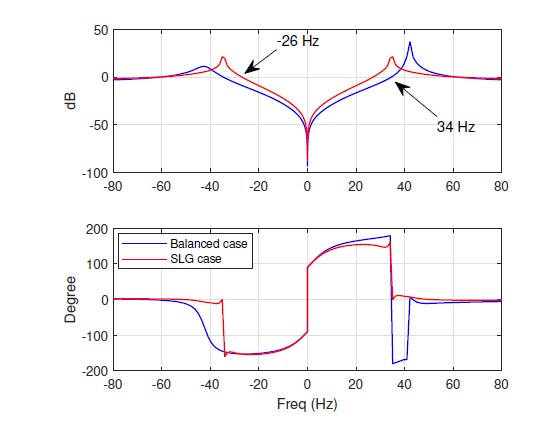Advantages:
- Accurate analysis of unbalanced topology in power grids
- Improved understanding of fault behavior and system stability
- Simplified and efficient analysis process
Business Summary:
This invention presents a modeling approach for unified harmonic and dynamic stability assessment of systems subject to unbalanced faults. The approach involves building a generalized dynamic circuit representation using operational calculus and translating the voltage and current relationship at the fault location into the relationship of three sequence subsystems. The final circuit model is an interconnected sequence network with impedances expressed in the Laplace domain associated with voltage and current dynamic phasors. An example case of an induction motor served by a grid through a series compensated line is used to illustrate the modeling procedure. The analysis results generated by the dynamic circuit corroborate the electromagnetic transient simulation results which demonstrate that sub-synchronous oscillations can be mitigated when a single line to ground fault is applied at the motor terminal. This invention provides insights into why imbalance can improve damping of the subsynchronous mode. Overall, the invention presents a potentially powerful approach for analyzing and addressing harmonics issues, and stability issues in systems subject to unbalance, which can occur in both low and high voltage AC systems.
 An induction motor connected to a series compensated network
An induction motor connected to a series compensated network
is subject to a single line to ground (SLG) fault
 Simulation results showing that oscillations appear after t=1.5 s when a parallel line trips
Simulation results showing that oscillations appear after t=1.5 s when a parallel line trips
leaving the induction motor radially connected to a series capacitor;
and oscillations are mitigated after t=2.1 s when an SLG fault occurs.
 Bode diagrams of loop gains for stability check showing that the system has negative phase margin at 34 Hz for the balanced case implicating instability, while it has sufficient phase margin in the subsynchronous region implicating stability
Bode diagrams of loop gains for stability check showing that the system has negative phase margin at 34 Hz for the balanced case implicating instability, while it has sufficient phase margin in the subsynchronous region implicating stability
Desired Partnership:
Sponsored Research